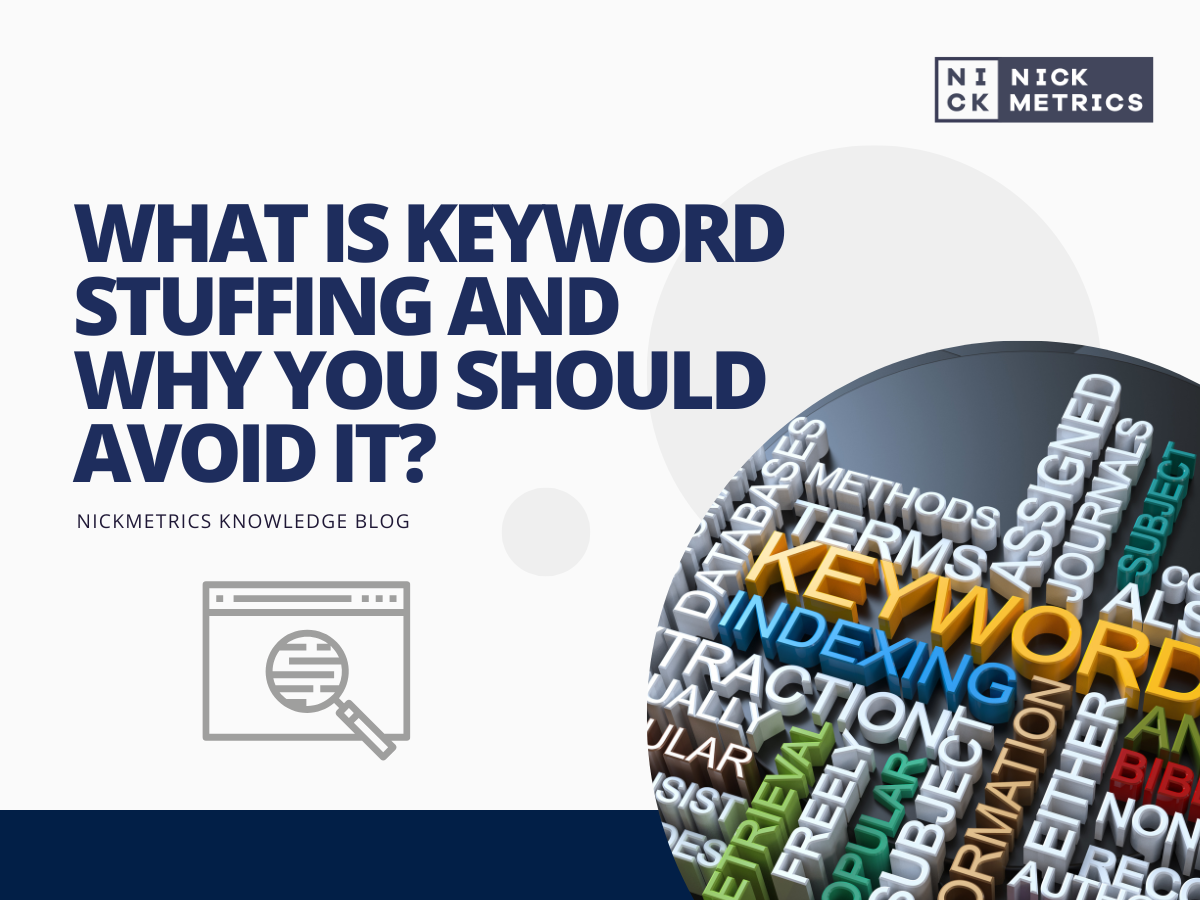
ENTER YOUR EMAIL ADDRESS
Follow Us

Stuffing the Christmas turkey with fun and delicious stuffing is one of the best parts of the holiday. But stuffing it with keywords is not nearly as appetizing when it comes to your website. In fact, it can actually be quite harmful to your site’s health. Do you know what keyword stuffing is? If not, don’t worry. You’re about to find out.
You need to place certain keywords in your website’s content to rank high on search engine results pages (SERPs). That will navigate people looking for those specific terms to your site. However, there is such a thing as too much of a good thing. If you stuff your content full of keywords, that’s called keyword stuffing, and it’s not a good idea. You see, when Google bots crawl web pages, they look for a healthy balance of keyword usage and a variety of other factors to determine where that page should rank. If they see a web page with too many keywords, it’s a red flag that the content might be low quality. It could indicate that the site is trying to game the system instead of providing users with valuable information.
There are several reasons why keyword stuffing is something you want to avoid, including:
You’re not playing by Google’s rules if you stuff your content with keywords. And we all know what happens when we don’t play by the rules…we get penalized. If you violate Google’s Webmaster Guidelines, your site could be demoted in the SERPs or even removed from Google altogether. So it’s just not worth the risk.
Another reason to avoid keyword stuffing is that it makes for terrible content. No one wants to repeatedly read a page full of the same word, and it’s just not interesting or engaging. And if your content isn’t interesting or engaging, people will click away from your site pretty quickly. Google notices the duration people stay on your site and how many pages they visit. If they see that people are bouncing off your site pretty quickly, that’s another red flag that your site might not be up to par.
If you’re keyword stuffing to mislead people, you could get sued. For example, let’s say you run a luxury hotel. But instead of using keywords like “luxury,” ” 5-star,” or ” upscale,” you use keywords like ” cheap,” ” discounts,” and ” deals.” When people see your hotel in the SERPs, they might think they will get a great deal on their stay. But when they get to your site and realize that’s not the case, they could feel misled and take legal action.
Now that you know keyword stuffing is not a good idea, you might be wondering how to avoid it. Here are a few tips:
Instead of using the same keyword repeatedly, mix things up a bit by using synonyms and related terms. For example, if you’re trying to rank for the keyword ” dog food,” you could also use words like ” canine cuisine,” ” pup chow,” and ” doggy dinners.”
Modifiers are words that can change the meaning of a keyword. For example, the keyword “dog food” could be modified to ” best dog food,” ” healthy dog food,” or ” organic dog food.”
LSI keywords are words and phrases that are related to your main keyword. So, if you’re trying to rank for the keyword “dog food,” some LSI keywords might be “dog food brands,” “dog food recipes,” or “dog food coupons.”
Keyword-rich phrases are simply phrases that include your main keyword. For example, if you’re trying to rank for the keyword ” running shoes,” some keyword-rich phrases might be ” best running shoes for women,” ” running shoes for men,” or ” running shoes for flat feet.”
When writing your content, try to use natural language as much as possible. In other words, don’t force keywords into your content if they don’t fit. Not only will it sound awkward, but Google will be able to tell that you’re stuffing keywords and penalize you for it.
Keyword stuffing is a forbidden black hat SEO technique that can get you penalized by Google. Therefore, it’s crucial to avoid keyword stuffing if you want your site to rank well in the SERPs. Use synonyms, related terms, modifiers, LSI keywords, keyword-rich phrases, and natural language to avoid keyword stuffing and improve your SEO.
Tags: Google Guidelines, Keyword Stuffing, Latent Semantic Indexing, LSI Keyword, SERP